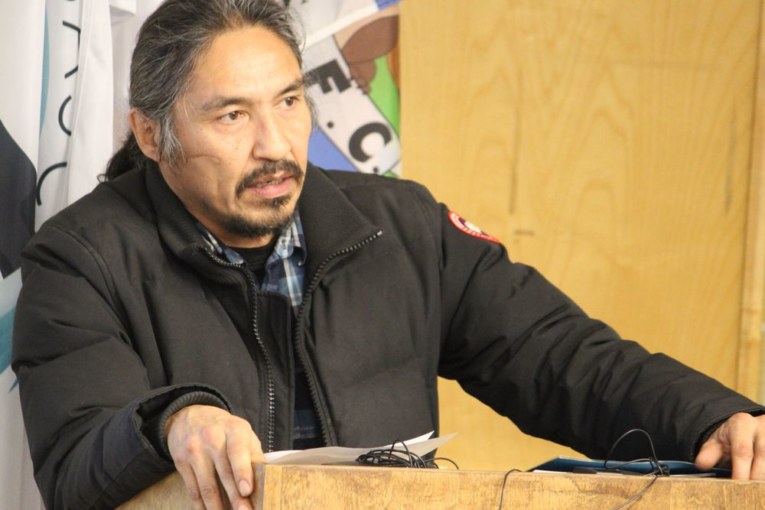
It’s difficult to find agreement on the election campaign trail, but the NDP and United Conservative Party do share common ground in one important area.
Both parties back the Trans Mountain expansion (TMX) project, and both want to see First Nations have the opportunity to buy a stake in the federally owned pipeline.
Ottawa set down several guiding principles this week for discussions with Indigenous groups interested in buying a piece of the pipeline, which the Trudeau government purchased last year for $4.5 billion.
Those guidelines include Trans Mountain must be operated on a commercial basis, that impacted communities have a chance for meaningful economic participation, and that Indigenous ownership help trigger economic development of their communities.
NDP Leader Rachel Notley, whose government committed last year to invest up to $2 billion into the pipeline’s expansion project if it faces cost over-runs — and receive an equity stake in return — has already spoken to interested First Nations that want to explore an ownership bid.
“We are more than interested and open to having conversations with First Nations groups … as well as supporting them in their efforts to take on a larger equity stake,” she said Thursday.
“We are, at this time, more likely looking at capacity funding for them, or potentially helping them get access to capital.”
Likewise, UCP Leader Jason Kenney said he’s had a number of conversations with groups like the Indian Resource Council of Canada, which have been pressing for Indigenous ownership as a way to reduce poverty and create jobs.
“I am very encouraged. I think this is the way forward,” Kenney said Thursday.
“It’s time that we gave practical expression (of) solidarity with the majority of First Nations who are pro-development. They want the right to move their people from poverty to prosperity and they understand responsible resource development, like TMX, is a way of doing so.”
The UCP will announce next week “practical ways in which we will support aboriginal co-ownership of that and other projects,” he added.
These are positive developments for Alberta, which needs a pipeline, and for Indigenous groups that want a chance to control development that could affect their land — giving them a seat in the board room — while providing economic opportunities.
First Nations’ ownership won’t remove all of the obstacles facing energy infrastructure in this country. Some Indigenous groups in British Columbia object to the pipeline’s expansion, which would triple the amount of Alberta oil moving to the Pacific coast.
However, it would be a constructive step, broadening support for an initiative that will help maximize the value of Canada’s natural resources.
The project first needs to move out of limbo.
The federal government is busy completing consultation with First Nations affected by the Trans Mountain expansion, and it’s expected to make a final decision on the development in the coming weeks.
“There’s no project yet,” federal Finance Minister Bill Morneau said in Calgary this week.
“We are going through the consultation process, so we can’t be putting participation on the table right now, but we’ve said we do want Indigenous equity participation.”
Similarly, Trans Mountain Corp. CEO Ian Anderson told Global News Radio this week that Indigenous ownership would be a “building block” to close the economic gap facing First Nations.
There won’t be any shortage of interested players when the Trudeau government decides to sell Trans Mountain to the private sector, which likely will not occur until the project is built.
Project Reconciliation, a group formed last year to acquire a majority stake in the pipeline, has contacted First Nations across Western Canada to gauge their support for getting involved.
Delbert Wapass, former chief of the Thunderchild First Nation in Saskatchewan and chairman of Project Reconciliation, said the response has been encouraging.
He believes the new federal principles, along with the support of Alberta’s political leaders, are giving the idea momentum.
“This here would be a game changer for many First Nations, where they would have the opportunity to have a better quality of life for their people,” Wapass said Friday.
“We are not asking for preferential treatment or special treatment, or asking to use taxpayer money … we will get the financing, we will do the business in a responsible, structured way. That’s what it means to us as First Nations.”
Other groups have also expressed interest, including the Athabasca Chipewyan First Nation and Fort McKay First Nation in Alberta.
Chief Allan Adam of the Athabasca Chipewyan First Nation noted he’s aware of four different groups considering an ownership bid.
The process is still in preliminary stages, but his interest remains high.
However, Adam cautions the Trudeau government shouldn’t be holding out hope of Indigenous ownership if it’s not serious about taking action.
“If they are going to lead First Nations down a trail where there’s no opportunity at the end, I think it will be very detrimental to Canada,” he said in an interview.
“All First Nations are watching this now.”
In Alberta, the parties themselves are offering political support — and may provide more tangible assistance to help make it happen — although the ball remains in Ottawa’s court.
“There is a role for the Alberta government to play here because … the oil is coming from Alberta,” Adam added.
“Every government player is going to be very critical.”
Chris Varcoe is a Calgary Herald columnist.
You can read more of the news on source
